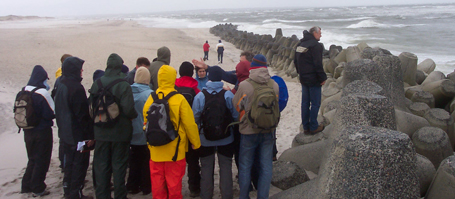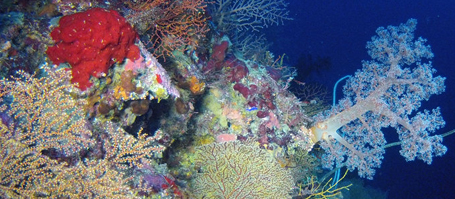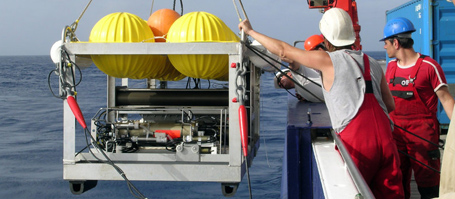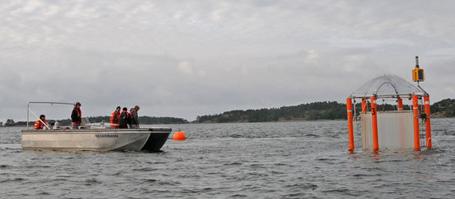From September 4th to 10th around 70 global leaders in coastal research are expected in Kiel for the third conference of the International Geological Coordination Program IGCP588 “Preparing for Coastal Change”. The conference belongs to the leading international symposia and is being organized for the first time in Kiel by the Institute for Geosciences (working group Sedimentology, Coastal and Shelf Geology) together with the Geographical Institute (working group Coastal Geography) of Kiel University. Supporters of the conference are UNESCO, the Cluster of Excellence “The Future Ocean” and the International Union for Quaternary Research (INQA).
Two-thirds of the world’s population live within 50 kilometers of the coast. 75 percent of all megacities with more than 10 million inhabitants lie in coastal zones, mostly in low lying river mouth areas threatened by flooding. These areas also know as deltas and their harbors accommodate industrial centers and are important transportation routes and transshipment points. The offshore shallow marine coastal areas are being increasingly exploited for raw materials and regenerative energies, e.g. wind energy parks, the coasts themselves serve as recreational and tourism areas, harbor ecosystems rich in species and worth protecting and are an important buffer between the land and the sea. The development of these coasts is very dynamic, especially in regard to climate change, sea level rise and human activities. Today many coastal regions are already effected by the effects of climate change, for example by the rise in sea level of the increase in extreme weather events in the form of storm surges or flooding like that caused recently by hurricane Isaac on the American Gulf Coast.
But how will the coasts develop further in future? How do they regenerate after impacts from tsunamis or storm surges? Which adaptation strategies are necessary and which make sense to counter the effects of climate change and sea level rise? What role do climate fluctuations play, both natural and anthropomorphic? And which results can be gained from comparisons of past warm and cold periods with climate data from the present?
The scientific topics of the conference, which took place in 2010 in Hong Kong (China) and in 2011 in Bangkok (Thailand), range from the analysis of the past 10,000 years, the Holocene up to current developments and changes of the coastal zone from the tropics to the high latitudes and the resulting adaptation strategies, however the use of the coasts for renewable energies is also included. Here models that predict coastal change in regard to climate change, human influences and natural threats are to be discussed.
In addition to the scientific lectures an exchange of ideas among international researchers will take place with practical examples along the Baltic Sea coast, on the Hallig Islands in the North Sea and on the island of Sylt. The Hallig Islands and Sylt are unique in regard to their natural development and human intervention in these natural occurrences. Whereas the building of dykes as a protection measure against flooding on the North Sea coast can be traced back over 500 years, the island of Sylt offers unique insights into the efforts of humans for more than 120 years in trying to halt the erosion of the coasts with the most modern scientific knowledge and methods available at the time.
Link to the website and program of the conference:
www.igcp588.uni-kiel.de
www.coastal-change.org/meetings-2/upcoming-meetings-2/3rd-meeting-germany
Contact
Prof. Karl Stattegger
Institute of Geosciences - Sedimentology, Coastal and Shelf Geology
Kiel University
Tel.: +49 431 880-2881
E-mail: kst@gpi.uni-kiel.de
Dr. Klaus Schwarzer
Institute of Geosciences - Sedimentology, Coastal and Shelf Geology
Kiel University
Tel.: +49 431 880-1188
E-mail: kls@gpi.uni-kiel.de
…



